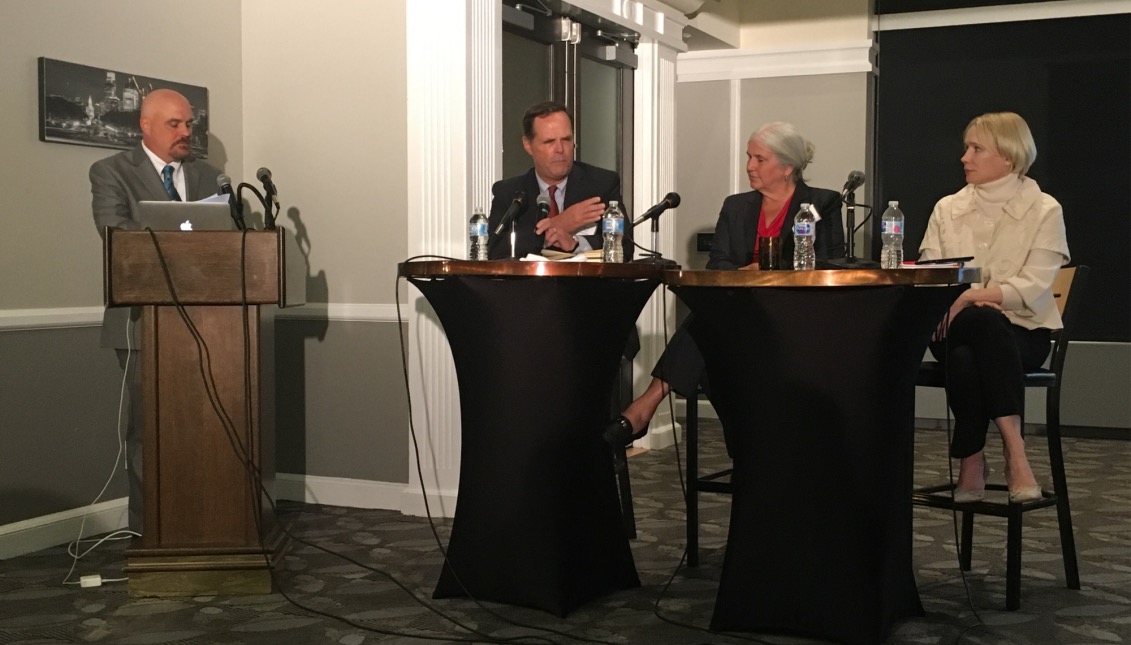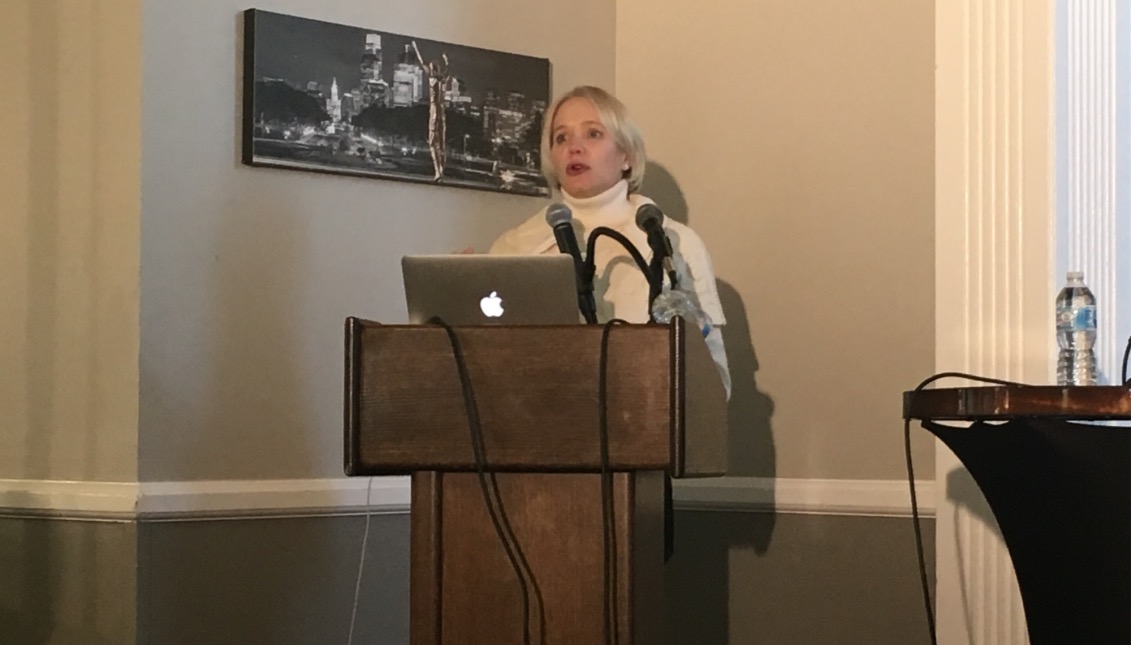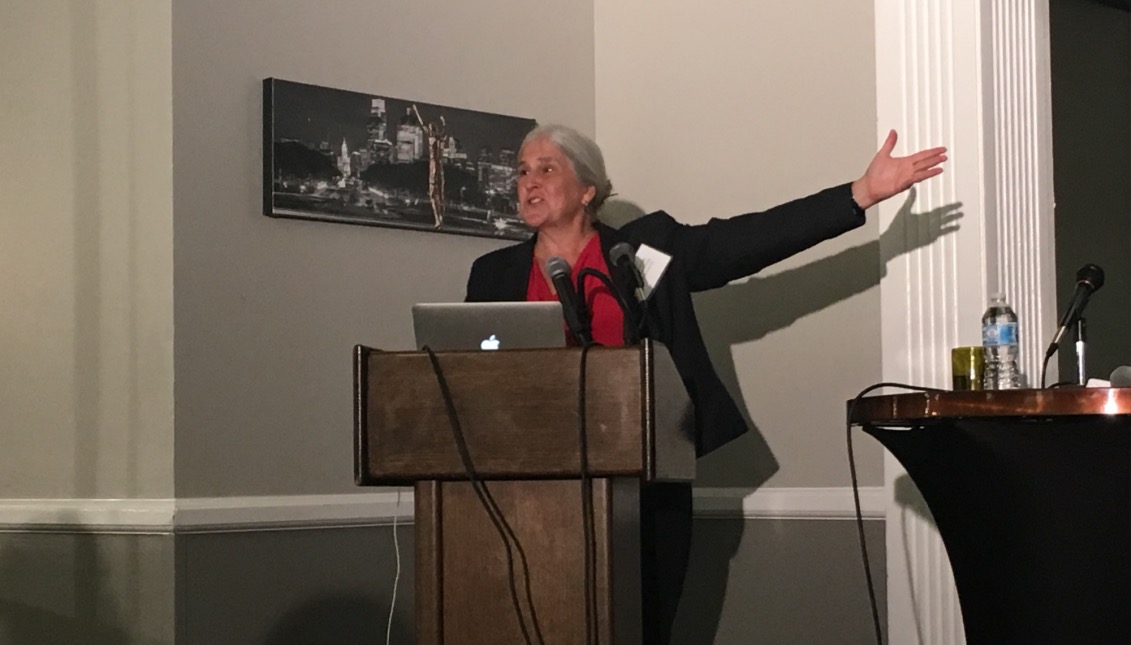
This is how gerrymandering affects US competitiveness
A panel of experts in the business world and in the electoral system discussed how the political system has been unable to create better conditions for the…
Democracy and inclusion are often issues associated with academic discussion or the struggle of popular movements for the claim of rights violated by the government.
The dreamers' struggle for an improved DACA, that of the Sioux Indians against the construction of a pipeline that would cross their sacred land in the Standing Rock Reservation, or that of the Black Lives Matter against the murder of African-American citizens at the hands of police officers, are clear examples of the origin and the regular protagonists of that discussion.
That is why, to see a group of "business people" talking about inclusiveness and participatory democracy on the 52nd floor of a downtown Philadelphia skyscraper is a little odd.
That was what happened last night at the exclusive Pyramid Club, "the favorite place of the power elite in Philadelphia", at the Mellon Bank Building, where several members of the city's corporate class met to discuss on how to reform Pennsylvania's constituencies with a view to improving the competitiveness of the regional economy.
The panel "Why the Industry of Politics is Failing American Business" was attended by David Thornburgh, chair of the Committee of Seventy; Carol Kuniholm, Executive Director of Fair Districts PA and Katherine Gehl, former CEO of Gehl Foods and co-author of the analysis "Why Competition in the Politics Industry is Failing America", published by the Harvard Business School.
For the specialists invited to the panel, the relationship between democracy and private companies lies in the inability of the political system to create a more favorable environment for corporations.
This impossibility, according to Gehl and her colleagues, has to do with an elementary issue of any democracy: elections and their effect on public decision-making.

According to Gehl, the problem is that US democracy is co-opted by a duopoly (the Democratic and Republican parties) "unable to represent the interests of the people as long as it has created a structure for the sole purpose of satisfying its own".
For the panelists, the solution is to dismantle the phenomenon of gerrymandering, the microarchitecture of the US electoral system - designed at the whim of the political class to maintain power in local settings - and which is supposedly the main obstacle facing the corporate class towards generating the legislative changes it needs.
RELATED CONTENT
In the study of Gehl (and her colleague Michael E. Porter), while the strengths of the corporate environment are created by the private sector, its weaknesses originate in the public domain. Policies such as taxation, health care, infrastructure and the political system as a whole are the factors that threaten the competitiveness of US companies.
That is why, from the perspective of Gehl and Porter, it is necessary to turn the electoral map over. Carol Kuniholm, executive director of Fair Districts PA, an organization that promotes a reform of the state's electoral district system, agrees that changes must be encouraged.
According to the Extreme Maps study, of the Brennan Center for Justice, Pennsylvania is one of the five states most affected by gerrymandering. This phenomenon has had an effect on the democratic culture: it has generated distrust, low citizen participation in the elections, and the pauperization of the legislative agenda.

For Kuniholm, the cost of gerrymandering is also economic. According to a recent Pennsylvania Economy League study, quoted by the panelist, "fiscal decline has accelerated in the last 24 years in all municipalities of the state" because of the legislative framework.
"Ten years ago the Pennsylvania Economy League talked to lawmakers about this issue and told them: 'the regulations that control our cities are a century old; reflect a reality that no longer exists. Unless new regulations are enacted, neither our cities nor our economy will prosper."
Kuniholm recalled that the obstacle to generate these legislative changes "is on an electoral map that fragments the capacity of citizens to influence."
Convinced, then, of the need to push for a reform in the way the constituencies are drawn up in the state, the panelists invited to support two bills currently discussed in Harrisburg: the SB 22 and HB 722, initiatives that need greater diffusion so that not only the citizenship recovers its incidence in the policy, but also so that the private sector continues being strengthened.











LEAVE A COMMENT: